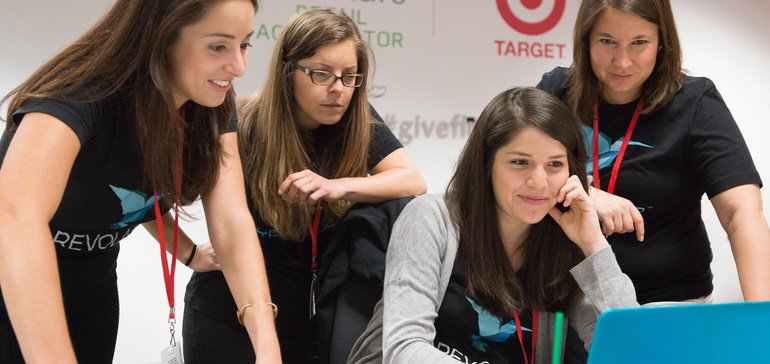
Here at the Future Stores conference in Miami, the air is abuzz with talk of innovation.
Retailers like Neiman Marcus and American Eagle Outfitters are talking up their latest technology experiments, such as their Memory Mirror program and chatbots for bra browsing, respectively.
But while some retailers are finding ways to invest in innovation, it’s clear that many are prioritizing more immediate problems — such as dealing with declining sales and mounting debt. With many brick-and-mortar retailers hurting on multiple fronts, innovation often gets bumped down the priority list. Retailers are still struggling to figure out which new ideas and technologies are worth investing in, how to effectively experiment with innovations and when to call on third parties for help.
For Ryan Broshar, managing director of Techstars Retail, a startup accelerator in partnership with Target, retailers can’t afford to delay or avoid innovation efforts altogether. In many cases, it’s a necessity for survival.
“[I]t’s important that retailers continue to budget and put priority on the innovation stuff,” Broshar told Retail Dive. “It’s really easy to get away from it when things are bad.”

This summer, Broshar helped launch the first Target technology accelerator in Minneapolis, pairing 10 startups with Target and other retail executives for three months. The program extends mentorship to these companies, but it’s also a way for Target to glean lessons on speed-to-market, agility and out-of-the-box thinking. Right now, Broshar is making his way around the country to meet with potential candidates for the next Techstars program, which is accepting applications for the summer until April 8. The final picks will be announced in July.
Retail Dive sat down with Broshar to discuss how startups can help spur innovation in retail and how to bridge the disconnect between the startup community and the big-box retail industry. The conversation has been edited for length and clarity.
RETAIL DIVE: You’ve had a range of experiences with startups extending beyond retail. How would do you characterize venture capital interest in this industry?
BROSHAR: I think the retail industry is going to fundamentally change and that screams opportunity for startups to play in that tumultuous next period of time. From a VC perspective, they are very interested in it and they are waiting for the stalwarts of the retail industry to catch up and have that realization that this does need to change, and I think we are at the very tip of that.
We are just beginning to see major retailers, like Target, like the members working with our organization, starting to realize, “Oh man, we have to get out ahead on this because if we don’t, we’re going to be left behind.” I think a lot of VCs are looking at it as an opportunity. We had a lot of funding for our companies in our program and we’re really interested in trying to get the alignment between the startup and the retail community, so that startups want to build companies that service the retail industry because right now they’re not looking at that first.
They’re looking at, “Hey, I could build a company that services hospitality or it could be the auto industry or all these other people that have adopted it fully.” And I think auto is a great example, where now Ford is saying they aren’t a car company, they’re a mobility company and provide services, experiences and it goes beyond the manufacturing of the car. I think retail is going to have that epiphany any day now, hopefully.
What’s the catalyst that will tear down the gap between legacy retailers and startups? Are retailers going to startups or are startups going to retailers?
BROSHAR: I think the balance tips more toward the startups trying to tell [retailers] what’s actually going on in the market and how things are changing versus the retailers coming to the startups and telling them, “Here are our problems.” I think traditionally retailers have had difficulty admitting they have problems. They don’t want to say, “We’re not good at this.” There’s a lot of benefit to saying that because then people will come to you with solutions for those problems.
So what you’re seeing right now is the startups being like, “We’ve talked to a lot of people, we know you have this problem, let us help you with that problem.” Then it’s a matter of [retailers] accepting internally that they have this problem and putting the processes in place to actually work with an external company to help them internally on…

